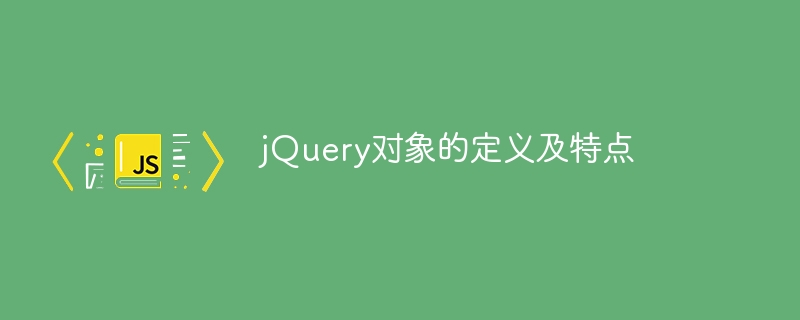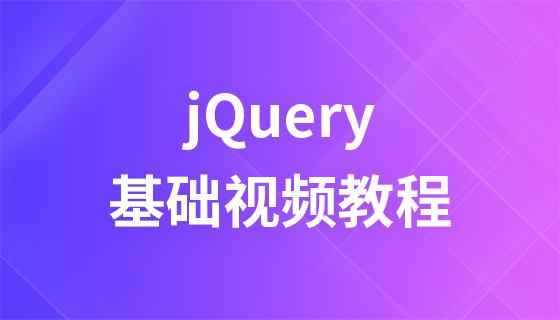

jQuery is a popular JavaScript library that simplifies the manipulation of HTML documents, event handling, animation effects, Ajax and other functions. By using jQuery, we can operate the DOM more quickly and efficiently to achieve various interactive effects.
1. Definition of jQuery object
In jQuery, selectors are used to find and select DOM elements through specific selector expressions, and encapsulate them into jQuery objects for subsequent processing. operate. jQuery objects can be created through the $() function. The parameters of this function can be CSS selectors, HTML strings, DOM elements, DOM element arrays, etc.
// 通过ID选择器获取元素并封装成 jQuery 对象
var $element = $('#myElement');
// 通过class选择器获取元素并封装成 jQuery 对象
var $elements = $('.myElements');
// 通过DOM元素获取并封装成 jQuery 对象
var $button = $(document.createElement('button'));2. Characteristics of jQuery objects
$('p').css('color', 'red').addClass('highlight').fadeOut();$('input[type="text"]').val('Hello World');click(), hover(), on(), etc., are used to handle various events of elements. $('#myButton').click(function(){
alert('按钮被点击了!');
});fadeIn(), fadeOut(), slideUp(), slideDown(), etc. can be used to achieve dynamic effects of page elements. $('#myElement').fadeIn();$.ajax() method, which can easily interact with the server for data, before and after implementation end data transmission. $.ajax({
url: 'data.json',
method: 'GET',
success: function(data) {
console.log(data);
},
error: function(error) {
console.error(error);
}
});To sum up, the definition and characteristics of the jQuery object make it one of the indispensable tools in front-end development. Whether it is manipulating the DOM, handling events, creating animation effects, or making Ajax requests, jQuery can complete these tasks conveniently and efficiently, and provides developers with a wealth of methods and functions. I hope this article helps you understand jQuery objects.
The above is the detailed content of The definition and characteristics of jQuery objects. For more information, please follow other related articles on the PHP Chinese website!
